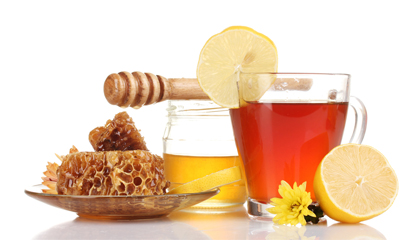Franchising, retail, business

07/01/2015
Heavy head, fatigue, body aches, chills and a runny nose: these are the unmistakable signs of the flu. Every year millions of people are affected by this seasonal illness forcing us to bed and rest. And rest certainly is the best medicine: it allows the body to conserve its energy and fight viruses to heal faster and better. Resorting to over-the-counter drugs, in fact, is not always the best solution. Often it is better to avoid their immediate intake to lower a fever: this is the body’s natural reaction that should not be feared. In general, it is more appropriate to help our body fight disease itself, giving it the opportunity to take its own course. There are many options that are offered by natural medicine: We can learn to defend ourselves with the gentle treatments that nature has given us!
The qualities of citrus fruit are well-known to all: great for fighting colds and preventing symptoms, they are a natural source of vitamin C and antioxidants that have healing and protective effects. Another natural wonder for the cold and flu season is garlic: already known for generations as a natural antibiotic, scientific studies have proven its quality and established that it is an excellent natural medicine for coughs and flu, to be used with caution, however, in people with bleeding disorder, stomach and intestinal irritation, gastritis or ulcers.
Another natural antibiotic is propolis: derived from the resin of some plant species to which bees add pollen, wax and enzymes, its active ingredients, also equipped with anti-inflammatory properties, make it an effective natural remedy to treat infections of the upper airways.
In Australian Aboriginal culture tea tree oil is used in infusions against gastrointestinal and respiratory infections. Extracted from tea-tree (Melaleuca alternifolia), an evergreen plant native to Australia, it has antiseptic, antibacterial, antifungal and also anti-inflammatory properties.
In all cases, drinking lots of water is one of the secrets to "dissolving" cold and flu: if you love herbal teas and infusions, you should also try ginger, horseradish, rosehip, Echinacea and lemon balm (Melissa Officinalis). The part of the ginger used in herbal medicine is the root, which can be used to prepare anti-flu herbal tea, to reduce nausea and an upset stomach.
Also horseradish seems to be a universal remedy, used as an infused tea for mucus coughs and bronchitis. Rosehip, on the other hand, is a wild plant that is found in the forests of Europe and tropical America: it is a natural source of vitamin C, great when sweetened with honey. From plants belonging to the Asteraceae family, Echinacea helps treat infections and is an effective natural remedy to boost the immune system and fend off any kind of infection. A well-steeped infusion of the leaves of lemon balm can help relieve headache due to head colds: the drink stimulates the kidneys and sweating with a detoxifying effect and can have excellent sedative qualities.
A good match for hot drinks is apple cider vinegar: helpful in relieving inflammation of the throat, it can also be used to gargle or in a spray mist. The same is true of onion: if boiled in a little bit of water, the juice that is obtained can be used for gargling, simply to decongest the pharynx and help eject any bronchial mucus.
Even spices can rush to the aid of fighting off the flu. An infusion of sage, for example, is indicated for sore throats, while the infusion of oregano relieves coughs. In turn, thyme is an expectorant (that is, it helps clear out your lungs faster so you feel better sooner), disinfectant, antioxidant, antibacterial and antiviral, while rosemary, taken as an infusion, is an energy and detoxifying remedy to rebalance the body in times of stress and fatigue.
Fonte:http://slowfood.com/international/slow-stories/250545/natural-remedies-for-cold-and-flu/q=29234B?-session=query_session:5FF1804602a3f1BFADNgA7D2C225